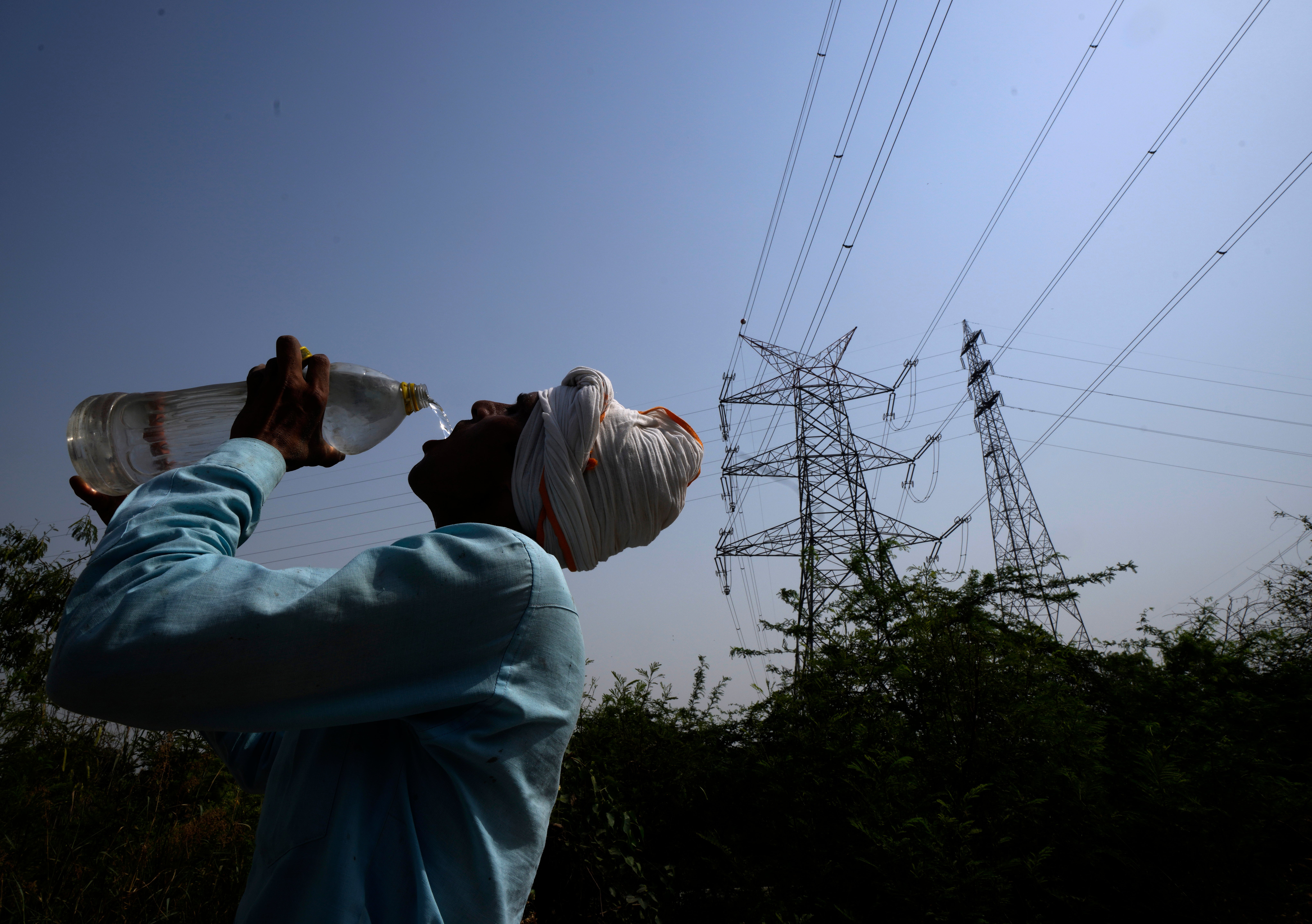Death toll hits 25 in India state as 40C heatwave drags on
India and Pakistan have been hit hard by a deadly heatwave
Your support helps us to tell the story
From reproductive rights to climate change to Big Tech, The Independent is on the ground when the story is developing. Whether it's investigating the financials of Elon Musk's pro-Trump PAC or producing our latest documentary, 'The A Word', which shines a light on the American women fighting for reproductive rights, we know how important it is to parse out the facts from the messaging.
At such a critical moment in US history, we need reporters on the ground. Your donation allows us to keep sending journalists to speak to both sides of the story.
The Independent is trusted by Americans across the entire political spectrum. And unlike many other quality news outlets, we choose not to lock Americans out of our reporting and analysis with paywalls. We believe quality journalism should be available to everyone, paid for by those who can afford it.
Your support makes all the difference.India’s western state of Maharashtra has recorded 25 deaths from heat stroke since late March, the highest toll in the past five years.
And more fatalities are forecasted as the nation swelters in temperatures over 40C.
Scientists have linked the early onset of an intense summer to climate change, and say more than a billion people in India and neighbouring Pakistan were in some way vulnerable to the extreme heat.
With cooling monsoon rains only expected next month and increasingly frequent power outages in some parts of India, even households that can afford air conditioners will have little respite over the next several weeks.
Many of the deaths in Maharashtra occurred in the more rural areas of India’s richest state.
"These are suspected heat stroke deaths," Pradeep Awate, a Maharashtra health official, told Reuters.
India is the world’s second-biggest wheat producer, but the heat is set to shrivel this year’s crop, after five consecutive years of record harvests.

As power demand surges, generating companies are staring at massive shortages of coal and the government is pleading with them to step up imports.
This weekend Pakistan issued a heat warning after the hottest March in 61 years while in parts of neighbouring India schools were shut and streets deserted.
Pakistan’s federal minister for climate change, Sherry Rehman, urged the federal and provincial governments to take precautionary measures to manage the intense heatwave, which touched highs of 47C in parts of the country.
"South Asia, particularly India and Pakistan are faced with what has been a record-breaking heatwave. It started in early April and continues to leave the people gasping in whatever shade they find," Rehman said in a statement.
Temperatures were predicted to rise by 6 to 8 degrees Celsius above average temperatures after the hottest March on record since 1961, she said.




Join our commenting forum
Join thought-provoking conversations, follow other Independent readers and see their replies
Comments